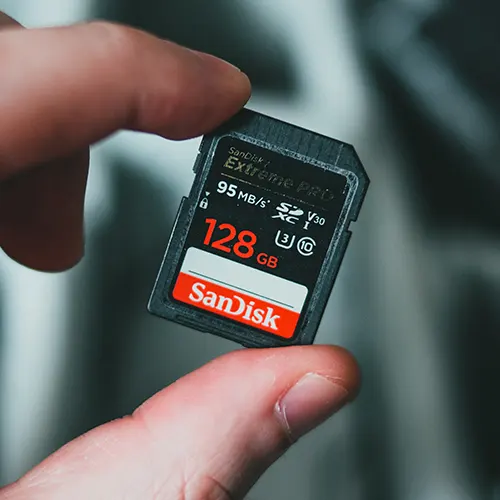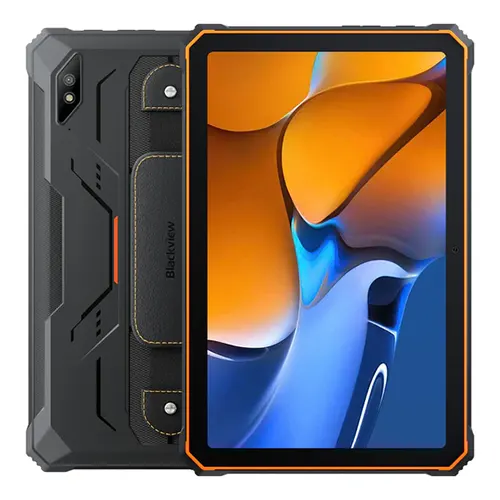
Understanding Mobile Operating Systems: A Comprehensive Guide
Meta Description: Dive into the world of mobile operating systems (OS) with our comprehensive guide. Learn about the key differences between iOS, Android, and other mobile OS options, helping you make an informed choice for your next smartphone.
In the fast-paced realm of smartphones, choosing the right mobile operating system is crucial. With various options available, including iOS, Android, and others, it's essential to understand the differences between them. This comprehensive guide will walk you through the world of mobile operating systems, shedding light on their features, pros, and cons.
What Is a Mobile Operating System?
Before we delve into the specifics, let's define what a mobile operating system is. Essentially, it's the software that powers your smartphone or tablet, managing hardware and software resources. Think of it as the brain behind your device, responsible for everything from running apps to managing battery life.
iOS: The Apple Experience
iOS, previously known as iPhone OS, is a mobile operating system created by Apple Inc. exclusively for its devices. It's the software that runs on iPhones, iPads (before iPadOS), and iPod Touch (until mid-2022). iOS is the world's second-most used mobile OS after Android and serves as the foundation for Apple's other operating systems like iPadOS, tvOS, and watchOS. While it's mostly proprietary, some parts are open source under the Apple Public Source License.
First introduced in 2007 for the original iPhone, iOS expanded to support devices like the iPod Touch (since September 2007) and the iPad (announced in January 2010, available in April 2010). Apple's App Store boasts over 2.1 million iOS apps, including a million designed specifically for iPads, with a total of over 130 billion downloads.
Apple releases new iOS versions annually, with the current stable release being iOS 17, made available to the public on September 18, 2023.
Pros:
- Seamless integration with other Apple devices (Mac, iPad, Apple Watch).
- Strong focus on privacy and security.
- Regular updates and a consistent user interface.
- Access to the App Store with a vast selection of high-quality apps.
Cons:
- Limited customization compared to Android.
- Exclusive to Apple devices.
Android: Versatility and Customization
Android is a mobile operating system built on a modified Linux kernel and open-source software, primarily designed for touch-based devices like smartphones and tablets. It was developed by a consortium of creators led by Google and was introduced in 2007, with the first commercial Android device, the HTC Dream, launching in 2008. While it's rooted in the Android Open Source Project (AOSP) under the Apache License, most devices use Google's proprietary version, which includes essential apps like Google Chrome and Google Play Services. Android has become the world's leading OS for smartphones and tablets, boasting over three billion monthly users and millions of available apps.
Android's versatility extends to various devices like game consoles, cameras, and more, with customized user interfaces. It's been the go-to OS for smartphones since 2011 and tablets since 2013. The latest version is Android 13, released in August 2022, and Android 12.1/12L brings tailored enhancements for foldable phones, tablets, larger screens, and Chromebooks.
Pros:
- Wide range of device choices from various manufacturers.
- High degree of customization, including widgets and themes.
- Access to the Google Play Store with a vast app library.
- Integration with Google services.
Cons:
- Fragmentation: Different Android versions and manufacturer-specific interfaces.
- Potentially slower OS updates depending on the device and manufacturer.
Other Mobile Operating Systems
Apart from iOS and Android, there are alternative mobile operating systems worth considering:
- KaiOS: Designed for feature phones, it offers smartphone-like functionality with minimal hardware requirements.
- HarmonyOS: Huawei's proprietary OS aims to provide a seamless experience across multiple devices, including smartphones, tablets, and smartwatches.
- LineageOS: An open-source and community-driven Android-based OS, known for its customizability and support for older devices.
Making Your Choice
Choosing the right mobile operating system depends on your preferences and needs. Consider factors such as device compatibility, app selection, customization options, and ecosystem integration. Whether you opt for the locked-down simplicity of iOS or the open-ended customization of Android, understanding the strengths and weaknesses of each OS will empower you to make an informed decision.
Conclusion
In the world of mobile technology, the operating system plays a pivotal role in your overall smartphone experience. By understanding the key differences between iOS, Android, and other options, you can select the mobile OS that best aligns with your preferences and needs. Stay tuned for more insights into the ever-evolving landscape of mobile technology.
Frequently Asked Questions (FAQs):
What is a mobile operating system (OS)?
A mobile operating system is a software that manages and controls the hardware and software components of a mobile device, such as smartphones and tablets. It serves as the foundation for running applications and providing users with a user-friendly interface.
What is the difference between iOS and Android?
iOS is the operating system developed by Apple exclusively for its devices, such as iPhones and iPads, offering a tightly integrated ecosystem. Android, on the other hand, is an open-source OS used by various manufacturers, providing more device diversity and customization options.
What are alternative mobile operating systems like KaiOS, HarmonyOS, and LineageOS?
KaiOS is a lightweight OS designed for feature phones with essential smartphone-like capabilities. HarmonyOS is developed by Huawei and aims for seamless integration across various devices. LineageOS is a community-driven Android-based OS focused on customization and privacy.
Is security a significant concern with mobile operating systems?
Yes, security is a crucial consideration for mobile operating systems. Both iOS and Android regularly release security updates to protect against vulnerabilities. Users are encouraged to keep their devices updated to enhance security.
Can I customize my mobile OS?
The extent of customization depends on the mobile OS. Android offers more flexibility for customization, allowing users to change themes, install custom launchers, and modify settings. iOS offers a more locked-down experience but still provides some customization options.
What is the role of app stores in mobile operating systems?
App stores, such as Apple's App Store and Google Play Store, are integral to mobile OS ecosystems. They allow users to discover, download, and update applications. App stores also play a role in ensuring app security and quality.
Are there any upcoming advancements in mobile operating systems to watch for?
Mobile operating systems continue to evolve, with ongoing improvements in areas like AI integration, privacy features, and cross-device compatibility.
How do I choose the right mobile OS for my needs?
To choose the right mobile OS, consider factors like your device preferences, ecosystem compatibility (e.g., iOS for Apple devices), customization requirements, app availability, and security features. Assess your priorities and match them with the OS that aligns best with your needs.
Latest Blogs

Exploring Memory Card Types: A Comprehensive Guide

Blackview Tablet Reviews: A Comprehensive Look at Features and Performance

The Best Portable Power Stations & Solar Generators in the UK (2025 Guide)

10 Best Smartwatches for Kids


